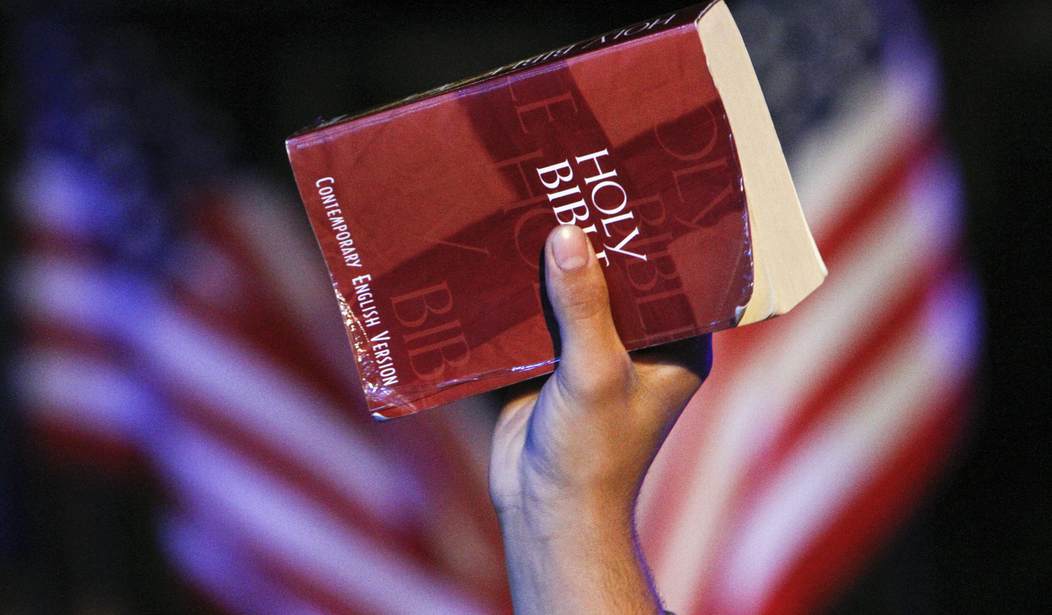When my daughter chose to let us adopt her as a teenager, she was choosing to abandon all she’d known. She was ripped away from everything familiar and intelligible in Ukraine and chose to face a new home, new parents, a new country, and even a new language.
Not a day goes by that I don’t thank God for her strength and His faithfulness.
Her life here in America hasn’t been easy. I couldn’t erase the brokenness and hardship of her life. I couldn’t ease the heartache and bewilderment I knew she felt when she first joined our family. Yet she walked into our home with grace and has emerged from it a wonderful woman, Christian and mother.
It’s important to emphasize that we, her parents, didn’t do that. She did. She didn’t do it perfectly, she didn’t do it easily, and she didn’t do it alone. She has been terribly hurt, again and again. But again and again, I saw her bathed in God’s grace.
God consoled her when I couldn’t. He consoled me because I couldn’t. He guided us together through untellable pain. And most importantly, He gave us her. He gave us all of our children.
And this is the reality of international adoption: a tremendous gift, one received with fear and awe. It’s messy. It breaks our hearts. We receive hearts of flesh in place of our hearts of stone.
International adoptions — like the ones that formed my family — force us to face the brokenness we could otherwise ignore. We see, suddenly, all the hidden scars and wounds in ourselves and each other. If we let Him work, we see them with God’s eyes for the first time.
I wouldn’t trade that experience for anything. I see now just how loved my children are, and how strong. If I hadn’t adopted my three children from Ukraine, I never would have had the opportunity to do some amazing things or, more importantly, to see God do some amazing things.
Recommended
I’ve been to Ukraine 26 times now. I’ve worked with church planters and government officials there. I’ve come to love another nation because it was the first home of my children. How as a father could I possibly remain indifferent to the backdrop for their earliest memories and first loves?
My family is the reason I know that suffering is no sign of “wrongness.” Just because international adoption is difficult doesn’t mean we should avoid it, or encourage others to do so. I’ve prayed so many times that my children would be spared the suffering I saw in their lives — but at the same time, I prayed that God would stay close to us if we had to walk through it anyway.
We did, and He was faithful. He showed up in so many ways: in close friends, in our church community, in providential meetings that led to important opportunities. He pulled us close to Him even in moments of sin and confusion.
I can’t imagine denying this experience of God’s tenderness to another family just because it was difficult for us, and will be for them. I also can’t imagine recommending it to someone who was unprepared or under-supported.
International adoption is uniquely difficult. It’s a calling you should discern carefully. It scared me — when my wife Denise first raised the question, I flatly refused to consider it. But God pursued me.
God pursued me, and He has followed me. I’ve been in places where I wanted to give up, but the Holy Spirit was still there. God doesn’t miraculously take away hardship, but he makes it possible for you to stay in the pain.
He is enough, no matter what — because He gives us everything we need to follow where He calls.
“[You] are not lacking in any gift, as you wait for the revealing of our Lord Jesus Christ,” Paul wrote to the Corinthians, “who will sustain you to the end, guiltless in the day of our Lord Jesus Christ. God is faithful, by whom you were called into the fellowship of his Son, Jesus Christ our Lord.”
And my family’s journey through international adoption is what has shown God’s faithfulness to me more than anything else. Whenever someone wants to talk about it, two things happen. I have a chance to share the Gospel, and I have a chance to talk about the incomprehensible faithfulness of God.
The reason our family’s story is a story of faithfulness is because God has been faithful, not us. He has sustained us, redeemed us, fixed us, put us back together and won tremendous victories in spite of our failings.
This is what we’re talking about when we talk about international adoption — and talk about casting it aside as a mission that’s insurmountably complex or difficult.
But who are we to deny families the opportunity to suffer with Christ? Who are we to bar men and women from taking up the cross God intends for them, to be broken and remade in His image?
When we refuse hardship, we deny God the chance to console us and to carry us. We should choose instead to be remade, even when it breaks our hearts.
Dr. Rick Morton is the vice president of engagement at Lifeline Children’s Services. Most notably, Dr. Morton is the co-author of the popular “Orphanology: Awakening to Gospel-Centered Adoption and Orphan Care” and the author of “KnowOrphans: Mobilizing the Church for Global Orphanology.” He and his lovely wife, Denise, have been married for over 31 years and have three children, all of whom joined their family through international adoption from Ukraine.

























Join the conversation as a VIP Member